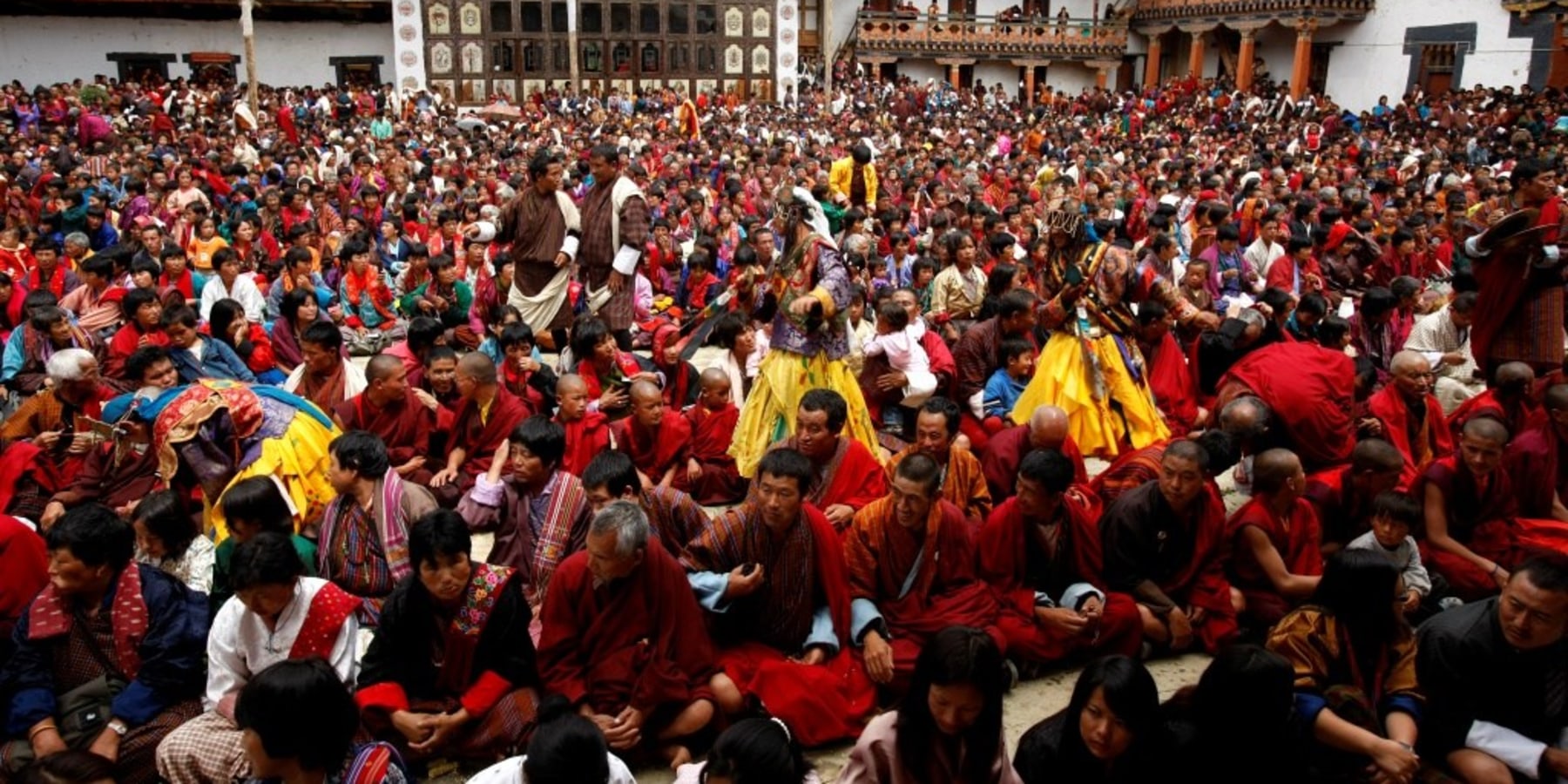
Punakha Drubchen: 21st Feb-24th Feb 2018
Punakha Tshechu: 25th Feb-27th Feb 2018
Punakha is located in the western part of Bhutan is the winter home of the Je Khenpo, the Chief Abbot of Bhutan. Punakha has been of critical importance since the time of Zhabdrung Ngawang Namgyel in 17th century. Zhabdrung Ngawang Namgyal is known as the unifier of Bhutan as a nation state and he was the one who gave Bhutan and its people the distinct cultural identity that identified Bhutan from the rest of the world.During 17th century Bhutan was invaded several times by Tibetan forces seeking to seize a very precious relic, the Ranjung Kharsapani. Zhabdrung Ngawang Namgyal led the Bhutanese to victory over the Tibetans and to commemorate the triumph he introduced the Punakha Drubchen. Since then Punakha Drubchen (also known as Puna Drubchen) became the annual festival of Punakha Dzongkhag.
The Punakha Drubchen is a unique festival because it hosts a dramatic recreation of the scene from the 17th century battle with Tibetan army. The ‘pazaps’ or local militia men, dress in traditional battle gear and reenact the ancient battle scene. This reenactment harkens back to the time when in the absence of a standing army, men from the eight Tshogchens or great village blocks of Thimphu came forward and managed to expel the invading forces from the country. Their victory ushered in a period of new-found internal peace and stability.
In 2005 another festival known as Punakha Tshechu was introduced by the 70th Je Khenpo Trulku Jigme Choedra and the then Home Minister His Excellency Lyonpo Jigme Yoedzer Thinley. The Tshechu was introduced in response to the requests made by Punakha District Administration and local people to host a Tshechu in order to better preserve Buddhist teachings and keep alive the noble deeds of Zhabdrung Rimpoche.
These two festivals not only play an important role in preserving Bhutan’s rich culture and traditions but also provide devout Buddhists with an opportunity for prayer and pilgrimage. They reflect the richness of the Bhutanese cultural heritage and are very special in the eyes and hearts of both Bhutanese and tourists who visit Bhutan.

